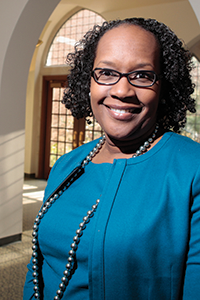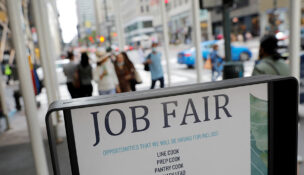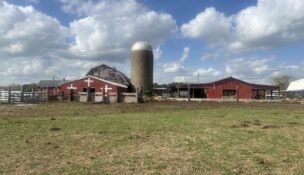Still a buyers’ market
Law school graduates still face challenges in landing jobs
Robert Burke //January 28, 2016//
Still a buyers’ market
Law school graduates still face challenges in landing jobs
Robert Burke //January 28, 2016//
Brian Sykes has fond memories of his law school days when the leap from third-year student to a law career was an easy one.
He graduated from Washington & Lee University School of Law in 1998, “and at that time, if you went to law school, you were pretty much guaranteed a job somewhere,” he says.
These days the market is a lot different, says Sykes, a partner and recruiting chair with the Norfolk-based firm Vandeventer Black, which has about 60 lawyers at offices in Virginia, North Carolina and Germany.
“My impression is that there are still more young lawyers in Virginia than jobs,” he says.
The recession of 2007-09 played a role in creating the current job market by pushing up law school enrollments as students looked for ways to improve their job prospects while waiting out the economic slump.
Once that slump ended, though, not all the lost legal jobs came back, creating kind of a market glut that still lingers. The class of 2013 was the largest ever in the U.S., according to the American Bar Association.
That helps explain why the employment rate nationwide last year for new lawyers was just under 87 percent, 5 percentage points below the 2007 rate.
So, with supply up and overall demand still relatively flat, salaries for new lawyers have stagnated. Overall, the eight law schools in the commonwealth have been feeling the pressure, too. The number of first-year students is down 24 percent this year compared with 2011, while the number of applicants is down more than 30 percent over the same period. Nationwide, total law school enrollment dropped nearly 5 percent from 2014 to 2015, to 113,900. The number of applicants continues to drop as well, to 54,130 this year, compared with 87,900 in 2010.
Of course, there are lots of directions a law career can take. But in general much of Virginia is fairly lucrative in terms of salaries. In Southwest Virginia, the average annual salary for a lawyer is $64,000, according to the Bureau of Labor Statistics. In the greater Richmond region, the mean salary is $128,000, while Northern Virginia leads the state with an average salary of $161,000 a year.
Those figures encompass a lot of different kinds of practices. Large private firms – those with 700 or more lawyers – in larger markets pay the best to new lawyers, with some paying $160,000 a year, according to research by the National Association for Law Placement (NALP) a Washington, D.C.-based group. But even among these highest-paying positions, there have been some cutbacks. In 2009, two-thirds of new hires at the big firms were paid $160,000, but that was the industry’s salary high point for new hires. Last year that share of highest-paid jobs was down to 39 percent of new hires, according to NALP. So, it’s clearly been a buyer’s market.
 There are a few reasons salaries went down during the toughest years after the recession, says Janet Hutchinson, associate dean for career development at the University of Richmond School of Law. “The employers that were the most impacted were the large law firms that paid the highest starting salaries, [and] at the height of the downturn some of those employers had to rescind offers,” she says. “After that, they started hiring a smaller number of graduates, and they haven’t returned to hiring the same number.”
There are a few reasons salaries went down during the toughest years after the recession, says Janet Hutchinson, associate dean for career development at the University of Richmond School of Law. “The employers that were the most impacted were the large law firms that paid the highest starting salaries, [and] at the height of the downturn some of those employers had to rescind offers,” she says. “After that, they started hiring a smaller number of graduates, and they haven’t returned to hiring the same number.”
The weaker job market has changed students’ approach, Hutchinson says. “They understand it’s more difficult … it’s clear to them that they need to step up their game if they want to land where they want to land.”
The school’s approach to career development has changed, too, after the tough market of five years ago, she says. First-year students are paired with a career adviser who works with them through their three years of study. Third-year students are offered the chance to be paired with a law school alumnus in their chosen practice area. And, the school has beefed up its summer stipend program in the past few years to give students money when they’re doing unpaid work. “We know that the experience students are getting is really valuable to their careers, but that’s not the kind of thing everybody can afford to do,” Hutchinson says.
Such efforts, and what Hutchinson says is an improved job market, are making a difference. Of the school’s most recent graduating class, 93 percent had found work by March of this year. “During tough times, it was in the low 80s,” she says.
For firms, hiring fewer new grads makes it even more important to get the right person. Sykes with Vandeventer Black says his firm starts screening candidates when they’re still in school, bringing a few in for summer clerkships. It even urges its law school candidates to try out other firms so they can get a sense of where they want to work.
“Some huge firms, maybe they don’t care as much if somebody’s going to be with them 10 years down the road,” he says. “We want them to want to be here and to know what the market is like and be very aware of what we’re like, because we want them to stay for the long run.”
The law students he recruits seem to be more serious. “When I was in law school, there were a bunch of my classmates who may not have had an investment in law the way students do now,” he says. “The people I talk to now really want to be in law school.”
There are signs of improvement in the current hiring market. The employment rate for the 2014 class was low compared with prerecession times, but it did bump up two percentage points over 2013, when just 84.5 percent of graduates found work. The caveat, though, is that the percentage went up because there were fewer graduates overall in 2014. That would suggest that demand is catching up with supply, which would be good news for students.
Hutchinson notes that the University of Richmond is bucking the enrollment trend. Its first year class this year is about 175 students. Maybe law schools are bottoming out in terms of dropping enrollments. “We’re typically more in the 140-150 range,” she says. The increase wasn’t planned, but “we’re really glad that a few more said yes. It’s good to be popular.”
P

















